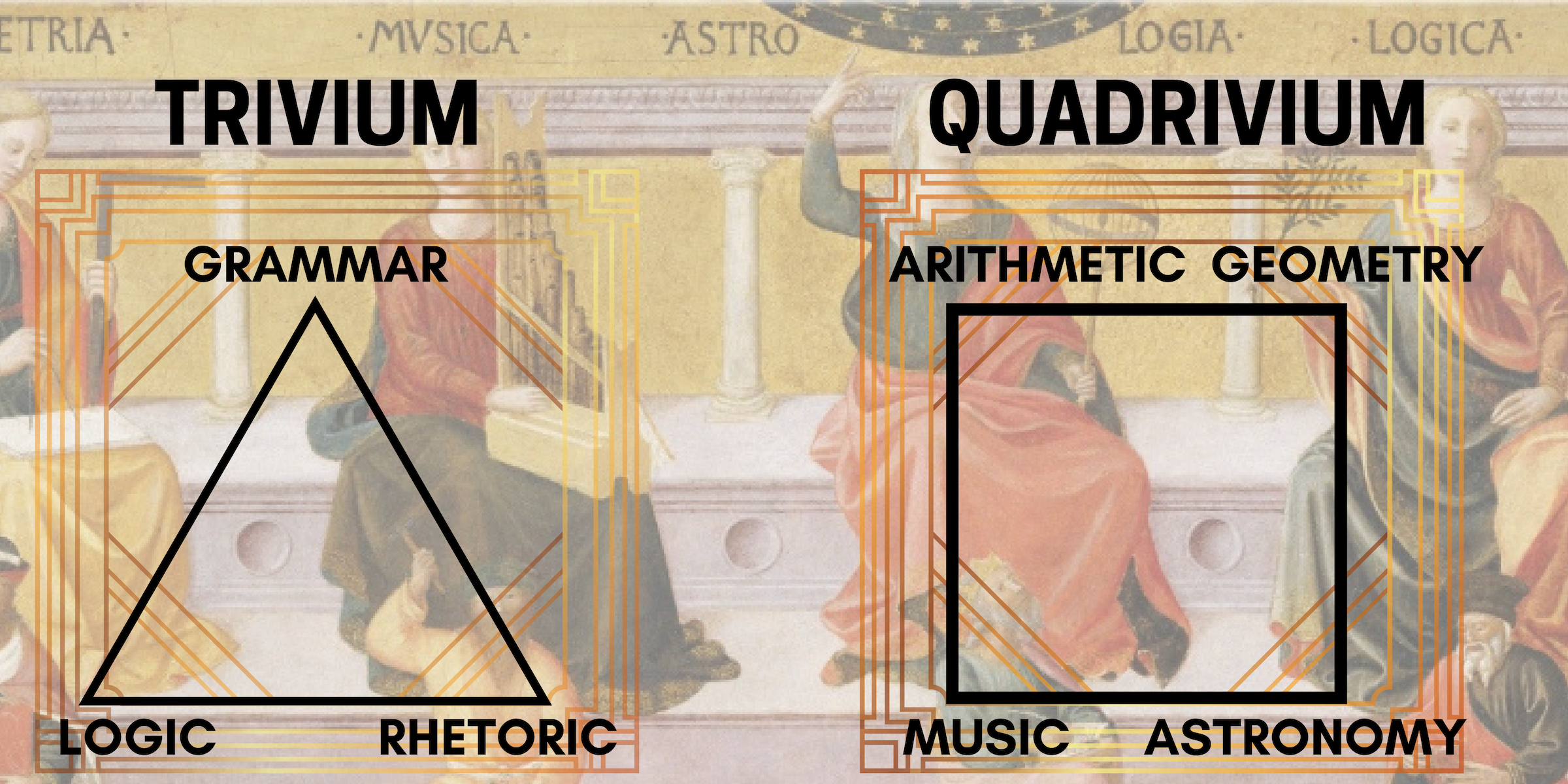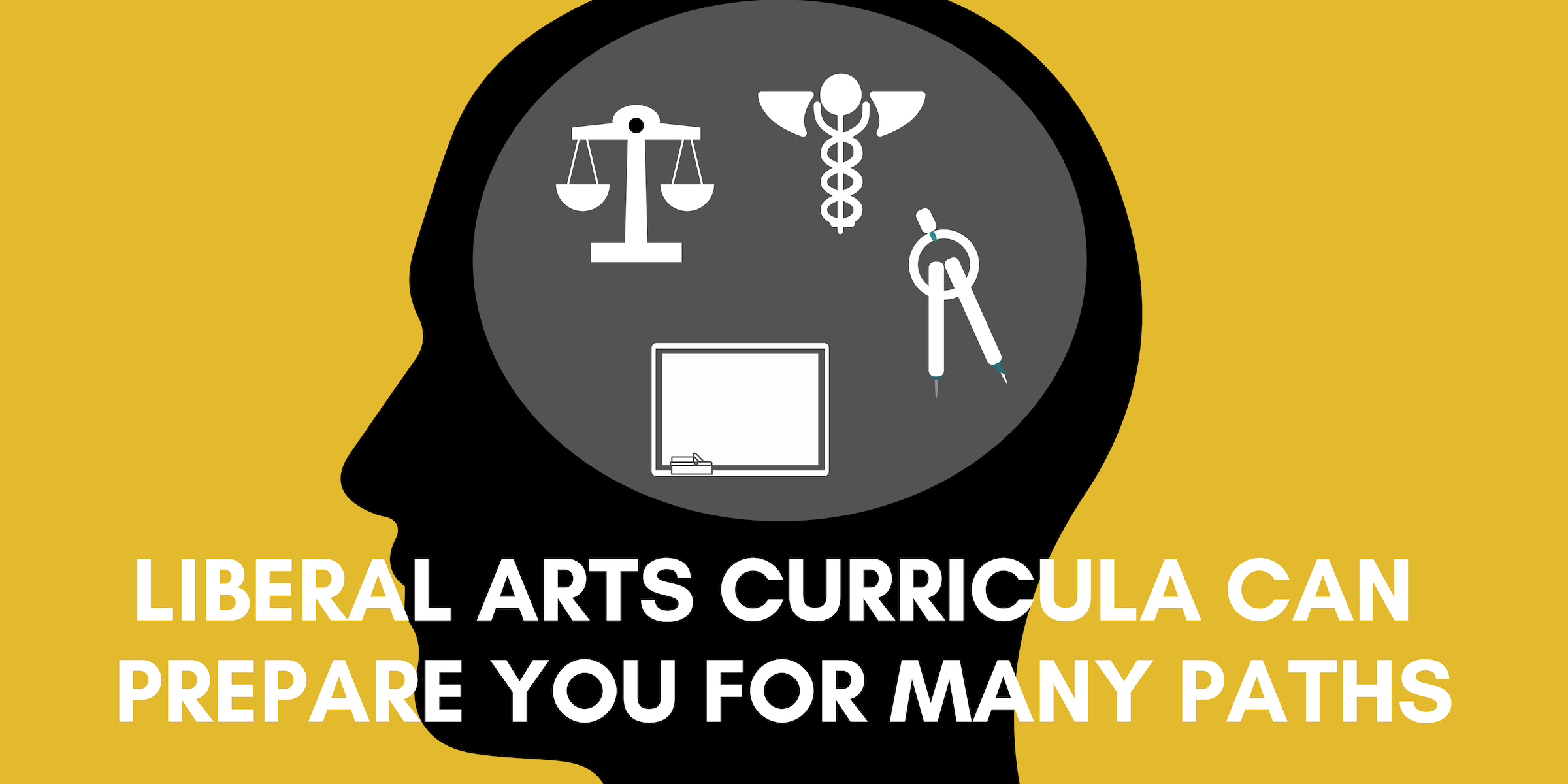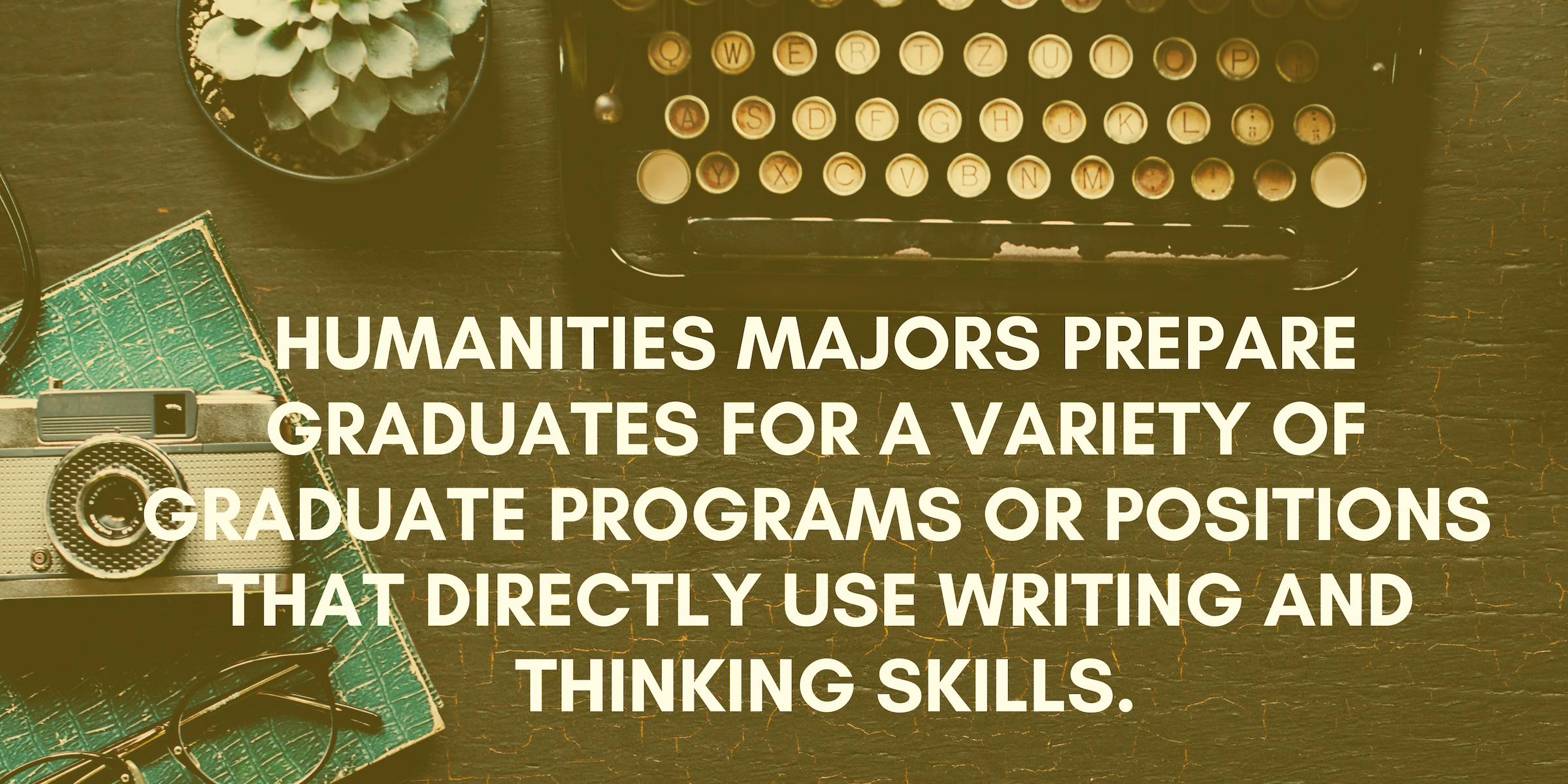
Pundits have called the liberal arts useless, some of the best degrees for teaching you how to think, as well as one of the only ways to get a true college education. There may be an element of truth to each of these assessments. However, what we can say more surely is that many, many individuals have found liberal arts degrees as a fantastic way to advance careers, make themselves better thinkers, and fulfill natural curiosity.
As you likely already know, the liberal arts (plural) are comprised of a wide range of subjects. So the answer to what you can do with a liberal arts degree will depend to some extent on exactly what liberal art one pursues.
With that in mind, our guide will look at the following:
- What are liberal arts degrees?
- What skills do liberal arts degrees hone?
- Can you get a liberal arts degree online?
- What you can do with liberal arts degrees?
- What resources are there for you to choose between liberal arts degrees?
Here at DegreeQuery we’ve covered all sorts of college and graduate degree-related topics. Many of these topics fall under the heading of liberal arts. If you have a specific question, feel free to look through some of our general FAQs below. Additionally, scroll down the page farther to see DegreeQuery’s coverage of “what can I do with a liberal arts degree?
General Liberal Arts Degree FAQs
- Top 15 Liberal Arts Schools in America
- What Degree Programs Can I Major in at a Liberal Arts School?
- Where Are the Best Places to Study Abroad While Earning a Bachelor’s Degree?
- Top 20 Highest Paying Online Degrees
- 25 Fastest Online Associate’s Degrees
- The Top 15 Schools for Studying Abroad
What is a Liberal Arts Degree?

The history of the liberal arts is long and nuanced. There is a strong claim that the liberal arts are the oldest degree type known. Dating back to the 5th and 6th century Greek and Roman empires, what we now know of as the liberal arts were taught as the subjects and skills deemed necessary for “free” citizens to know in order to participate in civic life.
As the years passed, the liberal arts were divided into two groups of subjects. One such group was named the Trivium. Topics included in the Trivium include:
- Grammar
- Logic
- And Rhetoric
The second group of topics that originally comprised the liberal arts was named the Quadrivium. Topics included in the Quadrivium include:
- Arithmetic
- Geometry
- The theory of music
- And Astronomy
The liberal arts of today are certainly built upon many of the ancient topics of the liberal arts. Though a more general definition of the liberal arts has emerged as topics that are not directly related to professional, vocational, or technical studies.

Today the subjects included in the liberal arts include the following:
- The arts (including fine arts, music, literary arts, and performing arts)
- Philosophy
- Religious Studies
- Social Sciences (including geography, law, linguistics, political science, psychology, sociology, and more)
- Natural Sciences (including biology, chemistry, physics, and more)
- Mathematics
Interested in a liberal arts degree? Be sure to check out our ranking of the Top 15 Liberal Arts Schools in America.
What skills do the liberal arts develop?
As we mentioned in our last section, liberal arts degree curricula do not directly tackle professional, vocational, or technical educational topics. This doesn’t mean, however, that the liberal arts can’t help to prepare you for professional, vocational or technical roles.
Though individual degrees, as well as schools, may focus more or less on specific skill sets, the liberal arts are known for promoting the following skills:
- Lifelong learning skills
- The ability to communicate clearly and effectively
- The ability to dissect complex ideas
- The ability to think logically
- Quantitative skills
- Problem solving skills
Many employers explicitly seek liberal arts majors due to their versatile nature as well as their ability to learn new skills quickly. A great proportion of job knowledge occurs in on-the-job training, and many liberal arts majors are particularly well equipped to excel in this area. While technical educations may become out-of-date in the matter of a few years, liberal arts educations tend to prepare graduates with skills applicable to any role throughout their lives.
The importance of the liberal arts can be seen through the fact that they’re a central part of the curriculum of all majors. General education requirements, typically required of all associates and bachelors degree majors are almost entirely liberal arts courses. The purpose of general education requirements is to ensure that graduating students are well-rounded thinkers, articulate, and generally deserving of a higher education degree.
In a sense, some commentators are right when they say that no one is truly educated to higher education standards without the liberal arts.
Think you may be interested in a liberal arts degree? Be sure to check out our ranking of the Top 15 Liberal Arts Schools in America.
Can You Get a Liberal Arts Degree Online?

A traditional image of a liberal arts major includes a small number of students discussing a topic with a teacher around a seminar table, long hours in the library, and impassioned conversations with fellow students.
While there is certainly something to be said for one-on-one attention, access to learning materials, and a scholarly community, today there are more ways than ever to gain access to these educational elements online.
Liberal arts degrees have historically been offered primarily at small, (often) private universities known as liberal arts universities. These universities rarely offer online degrees, and do often provide a traditional collegiate “feel.” Modern life, however, doesn’t often provide the time or resources required for this type of education. Luckily, many institutions of higher education have modernized their liberal arts degree programs and today provide them online.
Online learning isn’t the proper choice for all students. But it can be a great way to obtain a degree while juggling work of life responsibilities. Some of the most commonly mentioned benefits to online degrees include the following:
- Online degrees don’t require you to move to pursue a degree
- Many online degrees are built for working students
- Asynchronous degrees allow students to log on 24/7 to “attend” class
- Many traditional learning and support services are now available online
- Many online programs have fewer fees than in-person programs
Some of the downsides of online education include the following:
- Online degrees often require more self-motivation from the student
- Less access to on-campus enrichment and support opportunities
- Less chances to “get to know” professors or classmates
- Many students haven’t learned online before
While many liberal arts degree programs of today are offered online, many liberal arts graduates will attest that some of the most formative experiences of their life were at in-person liberal arts degree programs. With that said, the choice is ultimately up to you, what you feel you can include in your life, and what your ultimate goals are.
For a more detailed look at some of the pros and cons of online education, as well as what online degrees are out there, be sure to check out our 2019 online degree rankings guide page.
What Can I Do With a Liberal Arts Degree?
Taken as a whole, liberal arts degrees can lead to almost any job (particularly with additional degrees). Liberal arts majors routinely attend law school, medical school, nursing school, become educators and work as scientists.

A most specific answer can be given by considering individual types of liberal arts degrees. Below we’ll look at the types of degrees in the following academic field clusters:
- The Humanities
- The Arts
- The Natural Sciences
- The Social Sciences
- Mathematics
What Can I Do With a Degree in the Humanities?
Starting from the top, the humanities are degrees most commonly associated with the liberal arts. The humanities include subjects such as the following:
- History
- Philosophy
- English Literature
- Foreign or Ancient Language
While some associate’s degree programs are available in the humanities, a bachelor’s degree is traditionally the entry-point for humanities degrees.
Though this will vary somewhat depending on the student and which of the above subjects they pursue, humanities graduates are often prepared for one of a few things:
- Humanities graduates are prepared with solid critical thinking and communications skills
- Humanities graduates are prepared for non-science or tech professional degrees
- Humanities graduates are prepared for graduate coursework in their area of study
The critical thinking and communications skills offered by a humanities degree can be great assets to businesses, non-profits, or government organizations that need grant writers, content producers, account executives, and marketing professionals.
As humanities, majors advance in their career, their ability to continue learning throughout their life, communicate effectively and think critically often lead to leadership opportunities including management positions.

While humanities degrees don’t lead to “one single role” like some professional degrees — and thus require some leg work in finding what industry you should enter — in the long run they often pay off with skills that no other degrees teach.
The second option for humanities majors that is listed above includes returning for a professional degree after graduating with a humanities bachelors degree. While humanities majors can return for any graduate degree with a little extra coursework, a straight humanities course of study lends itself most well to attending graduate programs in education or law. Alternatively, students in the humanities are also some of the highest scoring students on graduate admissions exams in business fields.
The final option is to return to school for a humanities topic. Doctoral programs in philosophy, English, foreign languages, and history typically accept students directly from bachelors programs. The terminal degree in all of these fields is a doctor of philosophy (Ph.D.).
Unlike other doctorate types, Ph.D.’s are research doctorates. This means that one of the primary focus areas of the course of study is to produce original research in the form of a dissertation. Additionally, successful Ph.D. candidates should be well prepared to teach at the university level.
While graduates of doctoral programs in the humanities can move into other fields such as marketing and writing, the primary end-points of these programs are teaching or research careers.
What Can I Do With a Degree in the Arts?

Some artists note that they were not the one’s that chose to pursue their path, rather that they were chosen by their art. Others lament the “uselessness” of degrees in the arts. At DegreeQuery we’ve researched higher education degree outcomes for years and can tell you most certainly that there are many, many positive outcomes for degrees in the arts.
One thing we’ll need to distinguish before we proceed is what arts we’re talking about. At the undergraduate level, the most common art-related courses of study include:
- Performing Arts
- Theater Arts
- Fine Arts
- Music
- the Literary Arts
For a lucky few in all of these arts, their art will become their career. This is particularly true of the most prestigious conservatories as well as master of fine arts (MFA) programs in creative writing.
A second and much more common track is that students of the arts may enter into arts education. Coupling a degree in the arts with a bachelor’s in education, pursuing a master’s in education, or an alternative teacher licensure track like Teach for America are common routes to gain a teacher’s license.
Arts educators work in a variety of settings, though most commonly public K-12 schools. Additional locations of employment may include local museums, in private art instruction, theaters, for non-profits, and other settings.
What Can I Do With a Degree in the Natural Sciences?
The natural sciences are perhaps the most versatile of humanities degrees, both in terms of immediate employment opportunities and future graduate school admissions.
The most common natural sciences degrees include:
- Chemistry
- Biology
- Biochemistry
- Physics
- Geology
- Astronomy
- And related degrees
Generally, there are four routes students take after completing one of the above degrees.
- Obtaining employment directly in their field of study
- Becoming a K-12 educator in their field of study
- Pursuing a graduate degree in their field of study
- Pursuing a graduate degree in a separate field
For most of the above scientific disciplines, employment with a job title similar to your degree requires at least a master’s degree. Exceptions to this rule include undergraduates with degrees in biology taking lab or research positions under the supervision of a more educated biologist and those with bachelors in geology entering fields related to geology.
Teachers of STEM disciplines including most of the natural sciences are in high demand. Many states provide alternative licensing tracks that students may endeavor upon after receiving their bachelor’s degree in a STEM discipline. Alternatively, bachelors-level students in the natural sciences may elect to follow up their degree with a master’s in education or a dual bachelor’s in education to obtain licensure.
The third option for what you do with a degree in the natural sciences is to attempt to obtain admission to a graduate program in your area of study. There are both master’s and doctoral-level programs for each of the natural sciences. Master’s degrees typically take less time and in some fields can lead to employment as a scientist of the type you studied to be. Generally the title of “physicist,” or “biologist,” or “chemist,” however, is reserved for those that have completed a doctoral degree in their discipline.
Doctor of philosophy (Ph.D.) degrees are the go-to degree type in all of the natural sciences. While other related degrees may offer professional doctorates, Ph.D. programs are always research doctorates. This means that students must complete a dissertation filled with original research. This also means that Ph.D. candidates should be capable of teaching at the university level upon completion of their degree.
Both master’s and Ph.D. programs may be pursued directly after undergraduate study. In Ph.D. programs, students that do not already hold a master’s degree are granted a master’s part way through their course of study.
The final option for students of the natural sciences is to pursue a graduate degree in another field. The natural sciences are some of the most well-rounded and provide a strong basis for many professional degrees. Physics, geology, and chemistry are all strong degree to follow up with engineering degrees. Chemistry and biology degrees provide most all of the prerequisites needed to attend nursing or medical school. While most quantitative sciences may also lead to admission in technical graduate school as well.
Of course, graduates of the natural sciences may find they would like to pursue a very different route upon graduation. Natural science majors have some of the highest average scores on both law and business school admissions exams.
Taken all together, the undergraduate degrees in the natural sciences can lead to a wide range of fields.
For a more detailed look at where natural science degrees can take you, be sure to check out our science degree guide as well as our page specifically on biology degrees.
What Can I Do With a Degree in the Social Sciences?
Similarly to the natural sciences, degrees in the social sciences often lead to careers in those very same sciences when pursued at the graduate level. At the bachelor’s level, students of the social sciences may find employment at a lower level in their discipline, can pursue unrelated disciplines, or pursue teaching careers related to the social sciences.
The most common social sciences seen at the undergraduate level include the following:
- Economics
- Sociology
- Social Science
- History
- Anthropology
- Psychology
- Geography
Perhaps the most common undergraduate degree in the social sciences, psychology degrees can lead to a variety of therapy, counseling, and psychologist jobs with graduate training. For more in-depth information on what you can do with a degree in psychology, check out our psychology degree guide.
Sociology, social sciences, and anthropology all focus on studying how humans relate to one another on a systemic level. These degrees can lead to employment in the area of study with graduate degrees, as well as a number of related positions including social work, counseling, and human resources.
Geography degrees are quite specialized but can lead to important positions within the academic world with graduate education. Geography informs a wide variety of disciplines including history, biology, political science, physics, and geology.
What Can I Do With a Degree in Mathematics?

The fact that mathematics is one of the liberal arts often surprises students. This is because a degree in mathematics pursues a “pure” discipline that does not prescribe or prepare students for a particular career track.
With that said, mathematics majors may be the single most sought after of major types. Mathematics forms the basis for all quantitative disciplines. Applied mathematics is at the heart of health care, finance, the natural sciences, management, and technology.
Particularly lucrative and in-demand paths that mathematics can take with just a bachelors degree include training to be an actuary, statistician, or data scientist. Actuaries work with insurance and finance companies to assign levels of risk to scenarios. Statisticians work in a variety of scientific and business roles. While data science has recently become an incredibly in-demand skill set.
Many fields within graduate level mathematics programs are also quite applied. This is unique among liberal arts of which mathematics is counted a discipline because “pure” or theoretical mathematics is not career or vocation centered. With that said, many graduate-level mathematics disciplines are.
For a more detailed run-down of what exactly you can do with a degree in mathematics, what degree types are available, and what courses are taken, be sure to check out our mathematics degree guide.
Additional Resources for Choosing a Liberal Arts Degree
- Top 15 Liberal Arts Schools in America
- What Degree Programs Can I Major in at a Liberal Arts School?
- Where Are the Best Places to Study Abroad While Earning a Bachelor’s Degree?
- Top 20 Highest Paying Online Degrees
- 25 Fastest Online Associate’s Degrees
- The Top 15 Schools for Studying Abroad
- How do I become an Organic Farmer?
- Top 10 Careers for Extroverts
- Top 10 Careers for Introverts
- Top 10 Online Bachelor’s Degree Programs in Environmental Science
- What are the best degrees to get?
- What can I do with a degree in American Studies?
- What can I do with a Political Science degree?
- What Classes will I take for a Degree in Public Relations?
- What degree do I need to be a Natural Science Manager?
- What Degree do I need to be a Policy Analyst?
- What degree do I need to be a Training and Development Specialist?
- What degree do I need to become a Case Manager?
- What degree do I need to become a Journalist?
- What degree do I need to become a Judge?
- What degree do I need to become a Librarian?
- What degree do I need to become a Pharmaceutical Sales Representative?
- What degree do I need to become a Probation Officer?
- What degree do I need to become a Public Relations Specialist?
- What degree do I need to become a Translator?
- What degree do I need to become an Urban Planner?
- What Jobs Can I Get With a Liberal Arts Degree?
- What Should You Know When You Interview for a Job With a Degree in Math?
- Where Should I Go to Earn a STEM Degree?
- Why Do Some Degree Programs Require Undergraduate Students to Study Abroad?
